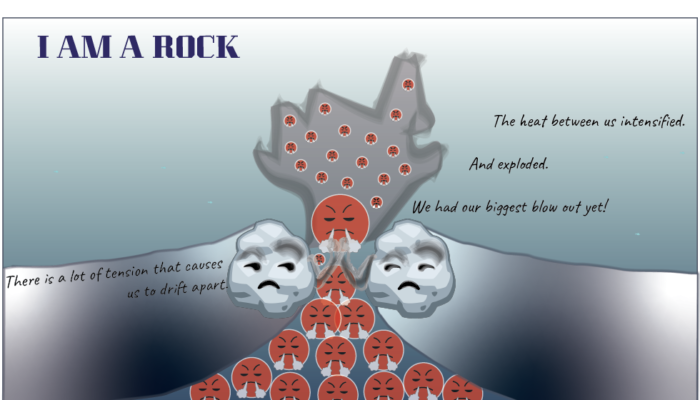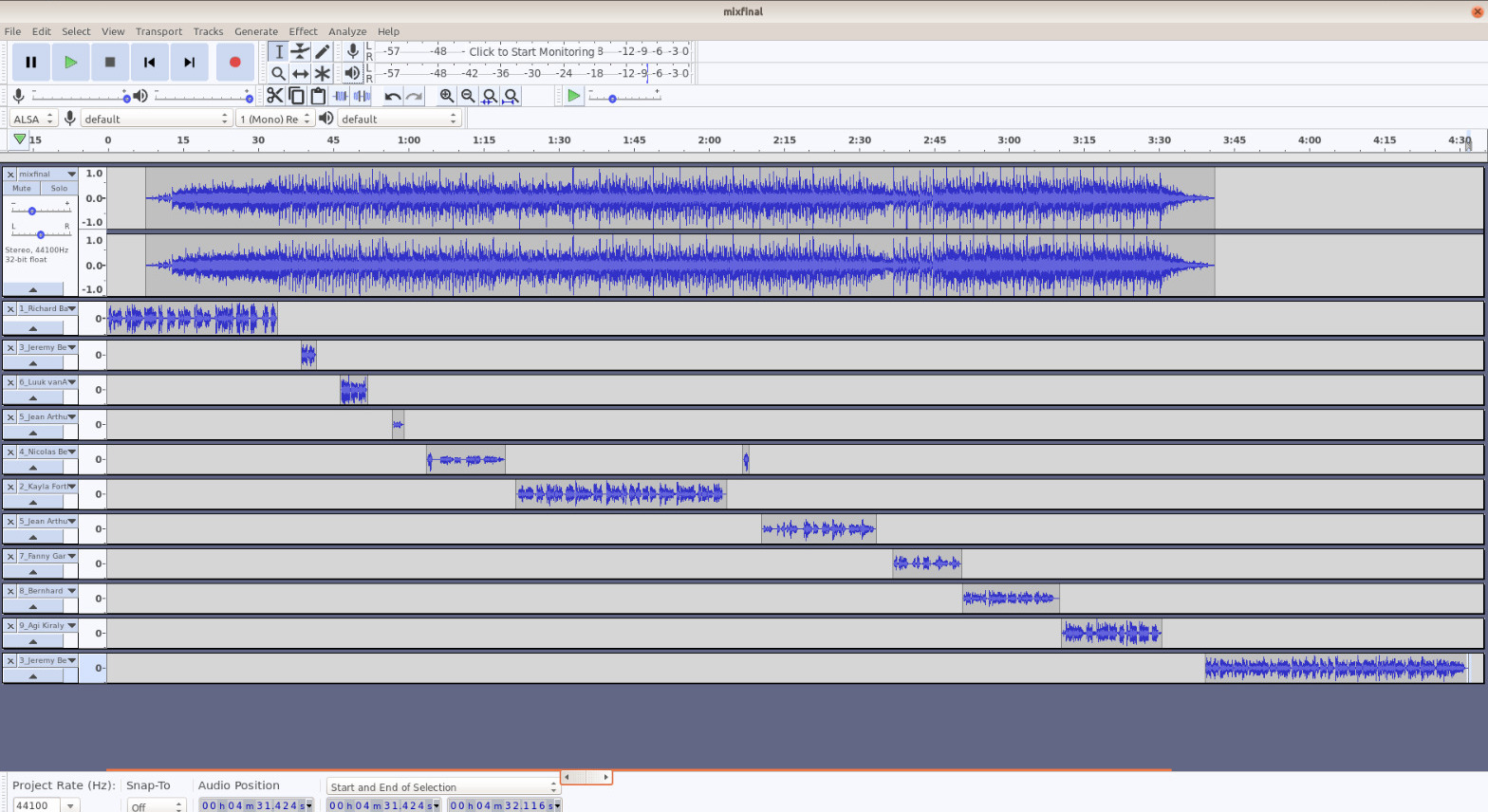
Outreach is becoming a more and more prominent part of the work of researchers. With public funding many of us are expected to show in a creative way what we do with our funding, but it is not easy to step out from the << I will post on social media>> comfort zone. This week Elvira Mulyukova, in collaboration with Cedric Thieulot, is showing us how to create something extraordinary from a classroom exercise. Make sure to listen to the audio (composed by Cedric) at the end of the post 😉
In the Winter of 2022, I taught an undergraduate course called “Earth is Out to Kill You: History and Science of Earthquakes and Volcanoes”. I had just started my Assistant Professor position at Northwestern and was teaching for the first time. Excited, full of ideas, ready to revolutionize STEM education (read naïve, inexperienced, quickly brought back to Earth). My students were not the chattiest bunch. With their faces half-covered by masks, eyes darting from the floor to the screen, occasionally to me, hardly ever to each other, a lively conversation was hard to get going. We were just emerging from the two years of the pandemic, thrilled to be in the same room with each other, yet so out of practice that it felt more like social anxiety. We talked about the human toll of the deadliest earthquakes and volcanoes, pretty scary stuff, but for many of them speaking up in class seemed scarier. I found them hard to read. I couldn’t tell if they were nervous, focused, or just bored. We talked about the immense geological forces of our planet, its role in shaping and destroying civilizations, and its little respect for human life. I quoted Voltaire’s bemoaning of the Great Lisbon Earthquake of 1755: “Come, ye philosophers, who cry, “All’s well,” and contemplate this ruin of a world.” Yet, I wanted my message to be a hopeful one: as we ‘contemplate’ and get to know the workings of our planet, we get better at living in harmony with it (or do we?… find out more in our climate science class!). We talked about how the Earth formed, differentiated, and ended up with plate tectonics, the latter being the culprit in all geological disasters, and yet without it we wouldn’t have life on this planet at all (or would we?… find out more in our planetary science class!). I had the students push on each other to imitate seismic waves, pitch disaster movie ideas, design their own units of measurement, play politicians and journalists in imaginary cities crumbling under imaginary disasters, mime decompression melting in a game of charades, and many other creative (or just weird) activities.
The outcome of one activity, in particular, moved me more than any other, and that’s what this blog post is about. I asked the students to imagine that they were… a rock. Not just any rock, but a rock at a tectonic plate boundary that is about to move. It could be a convergent, divergent, or transform plate boundary. They had to imagine being a rock for five minutes and write about it. Predictably, I had Simon & Garfunkel’s “I am a rock” song playing in the background while they were writing the prompt. Some students chose to revise their texts at home before submitting them, but most of them left them as they were. When I read them for the first time, I was struck by just how alive the rocks became in the minds of the students. The rocks lived ordinary lives, full of extraordinary thoughts and feelings common to any ordinary human. I read them over and over again, and admittedly projected my own thoughts and interpretations onto every rock that was really a student.
Below are the original texts written by the students, which you can read and interpret for yourself. To me, in these texts, is the confusion and anxiety of the young generation entering one of the defining moments of their adult life, some living away from home for the first time, all having just survived two years of a pandemic, witnessing peak moments in public outrage, learning about and facing some of humanity’s biggest challenges yet (crises related to climate change, energy consumption, human migration), all while wondering if they can meet the demands of increasingly competitive academic and job markets.
Reading these texts made a strong impression on me, and I wanted to share them with anyone interested (or not interested) in rocks. I wanted to share how comforted I am by the fact that our future rests in the hands of these deeply thinking, feeling, empathic young people. I wanted to share them in a way that would communicate the silly yet meaningful exercise of being a rock for five minutes, and I thought that doing it with music would be the way to go. I reached out to a colleague and friend, who I knew would understand the perspective of rocks and musical notes, the Assistant Professor in geosciences (and musician) Cedric Thieulot. One of the tunes that Cedric wrote was perfect for this project. To narrate the texts into audio recordings, I got a mix of volunteers: some were the students themselves, and some were the participants of the international 2022 Ada Lovelace Workshop on Mantle and Lithosphere Dynamics, in Hungary. The volunteer narrators span all ages, genders, nationalities, and career stages, just like the geophysics community itself. Those are the voices that you hear in the recording. Take the 4 minutes and 31 seconds to listen, ponder, and feel like a rock.
Below are the texts written by the students from the class EARTH-102-06 “Earth is Out to Kill You” taught in the Winter quarter of 2022 at Northwestern University, at the Department of Earth and Planetary Sciences. In their writing prompt “I am a rock”, each student describes the experience of a rock at one of the three types of plate boundaries. The students spent 5 minutes on the prompt, and some chose to revise their text afterwards (but most left it as is). The texts were then audio-recorded by the students themselves or by the volunteers from the 2022 Ada Lovelace Workshop in Hungary. Cedric Thieulot wrote the music and put together the music and the narrated texts. The complete texts, including the names of the authors and the narrators, are written out here, and parts of them are included in Cedric’s soundtrack. Enjoy.
Text and voice by Richard Bann (Northwestern University):
Today is just another regular day. Just the usual. I am still being pushed upwards by my impatient neighbours, or is it me who is moving on my own now? I lost track. Where are we even going? I am completely fine just staying here. It is pretty warm and cozy and there is nothing to worry about.
Wow, it seems to be getting cooler and cooler these past few days… I also think I see something I’ve never seen before – is that what they call “light”?
I have finally reached the surface. It’s really cold and there are these things swimming around me. I miss my old home.
Text by Cael Baumgarten (Northwestern University), voice by Luuk van Agtmaal (ETH Zurich):
Man, I’m really tired.
People think I’m just a lazy chunk of pointless matter that does nothing but tumble around sometimes and look innocuous, but really on the side I’m a financial advisor for a collection of important clients. I graduated from Penn back in 1978. It took a while for me to
– oh shit, my brothers are leaving. Ow, this hurts like hell. Guys, come back.
Text by Zayn Bajwa (Northwestern University), voice by Nicolas Berlie (Johannes Gutenberg University Mainz):
I am a rock.
Right now, my plate is crashing into our neighbours, and we are being sucked beneath them.
Though the day-to-day movement is hardly noticeable I can’t help but miss the stinging sensation of the salty ocean, a sensation that I despised for the millions of years that I was exposed to it.
I guess it’s true what they say, you don’t know what you’ve got until it’s gone.
My buddies and I sit around and reminisce about our times on top, as we try to ignore the ever-increasing heat as we continue to sink deeper and deeper into the abyss.
Text and voice by Kayla Fortis (Northwestern University):
I sit quietly, with my neighbour close by.
I don’t think he likes me. There is a lot
Of tension that causes us to drift apart.
I’m not sure why exactly, but I think
It is because we are both extremely
Heated, like very super hot.
All of a sudden, out of the intense silence,
I feel a pulling, slow at first, until
Suddenly, I am
Yanked apart away from my neighbour.
In my opinion, the distance was much needed.
However, the heat between us intensified
And exploded. Today, June 28, 2018,
We had our biggest blowout yet!
Text by Zayn Bajwa (Northwestern University), voice by Jean-Arthur Olive (CNRS – École normale supérieure – PSL University):
I am a rock.
Right now, my plate is crashing into our neighbours, and we are being sucked beneath them.
Though the day-to-day movement is hardly noticeable I can’t help but miss the stinging sensation of the salty ocean, a sensation that I despised for the millions of years that I was exposed to it.
I guess it’s true what they say, you don’t know what you’ve got until it’s gone.
My buddies and I sit around and reminisce about our times on top, as we try to ignore the ever-increasing heat as we continue to sink deeper and deeper into the abyss.
Text by Barb Burns (Northwestern University), voice by Fanny Garel (CNRS – University Montpellier):
Feeling pretty good about today.
I’m stable and holding stro –
what was that?!
Well, so much for strength and stability…
looks like there’s some seismic activity going on.
Wow – I feel the friction,
but the impact wasn’t anything extreme and my temperature is staying pretty consistent.
I guess my neighbouring plate is grazing mine. This guy is so abusive!
Text by Ilana Fingersh (Northwestern University), voice by Bernhard Steinberger (GFZ Potsdam):
The day started like any other.
I was sitting like I do, talking and hanging out with my friend, Jimmy the rock. Suddenly, something started to happen. Jimmy started moving one way, and I was pulled the other. We tried holding on to each other, but there was nothing we could do other than watch each other get further and further away. It was terrifying, and I’m scared I will never see Jimmy again.
Text by Brianna Perez (Northwestern University), voice by Ágnes Király (University of Oslo):
I was just torn away from a friend I have known for centuries. It all happened so quickly.
I was minding my own business talking to my friend, Tectonic Patricia, when I started getting hot. I figured it was nothing too abnormal and kept telling Tectonic Patricia about my favourite rapper and actor, the Rock. But as I was talking
I kept getting warmer and warmer until the heat was unbearable.
All of a sudden, I felt something push into me and force me upwards.
In an instance, I was moved far away from my best friend. All I felt was pain and confusion. Why would this happen to me?
Text and voice by Jeremy Bernstein (Northwestern University):
I am a rock, a mighty rock
My grip on my neighbours, I hope it won’t stop
It holds me together, much stronger than feather,
But it is still sad that it won’t last forever
My dynamic home, and yes it is home,
Is twisting and turning, like birds that have flown
But I am so lazy and don’t want to change,
The pressures I’m facing, oh no I’m unfazed
My laziness wins and I go to sleep,
Don’t want to see, next million years you keep
I’m shaken awake, distraught with an ache,
My neighbours are gone, what did the Earth take?
But after I see it, I now know why,
My world was shook by S waves passing by,
I shifted away, from my place I strayed,
It was rough for me but for others I’m afraid,
Shifting sub-surface, was not on purpose,
But building now dance like they work in the circus.



K.Narasimha Reddy
Cartoon on Magmatic intrusion is very nice.
Ági Király
Thank you! I had a lot of fun making it 🙂